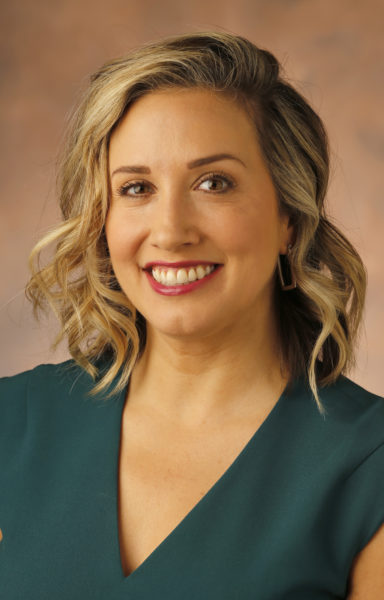Cara Tuttle, JD’03, director of Vanderbilt’s Project Safe Center and one of the top national experts on Title IX issues in higher education, presented to higher education officials across the country during a recent webinar focused on research she co-authored, “Preventing and Addressing Retaliation Resulting from Sexual Harassment in Academia.” The virtual webinar was Dec. 13.

Vanderbilt is a member institution of the NASEM Action Collaborative on Preventing Sexual Harassment in Higher Education. Mary Roy, director of Vanderbilt’s Title IX office, and Duane Watson, associate provost for faculty development, are members of the collaborative along with Tuttle. As a representative to the collaborative, Tuttle co-authored the paper through her work in the Remediation Working Group.
Action Collaborative member organizations participate in working groups focused on prevention, response, remediation and evaluation. Individuals in these working groups meet virtually to three times a quarter to:
- Identify promising practices within and beyond their institutions
- Engage and learn from research experts and practitioners
- Identify on-the-ground barriers, unintended consequences and challenges that arise with changes to practices
- Point out areas in need of research
- Consider cross-cutting topics such as the experiences of those with intersecting identities; power dynamics between individuals and stakeholder groups; how to scale efforts from one type of institution to another
During the recent webinar, Tuttle and her co-authors, Linda Boyd of Johns Hopkins University and Elizabeth Hutchison of the University of New Mexico, discussed the legal protections against retaliation related to sexual harassment, conditions that enable retaliation to occur, negative consequences of retaliation, and policies and practices that may help prevent retaliation.
Tuttle’s presentation aligns with efforts at Vanderbilt to create a sense of belonging and safety for every community member on campus. Several trainings and education initiatives on sexual violence are available to the campus community.
In addition, earlier this year the university launched a web portal called “You at VU” to help the community find resources to bolster their sense of belonging and nurture their growth.
The You at VU portal is a one-stop spot where students, staff, postdocs and faculty can find ways to connect with others, engage across campus and discover well-being support and resources.